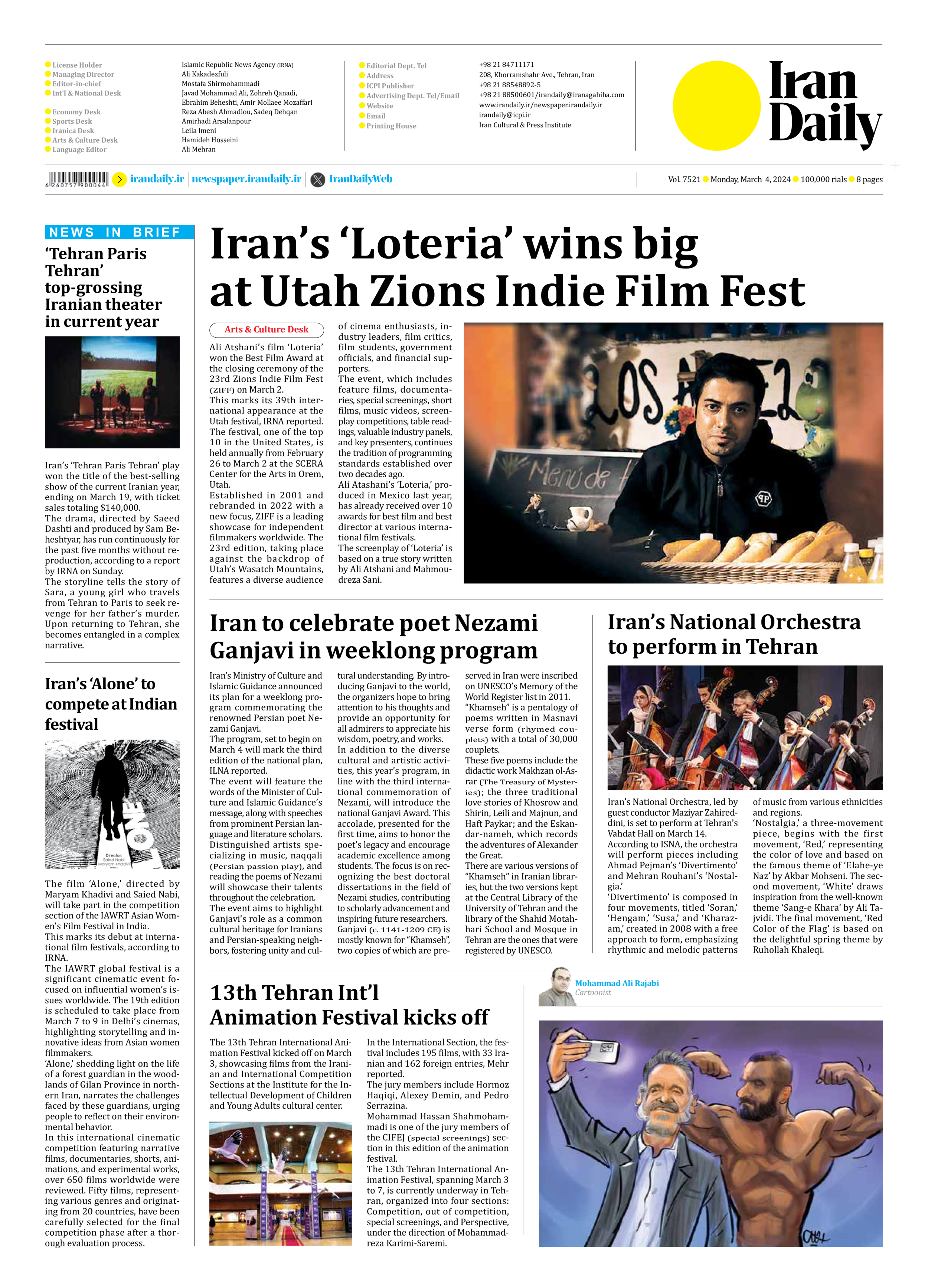
Iran to celebrate poet Nezami Ganjavi in weeklong program
Iran’s Ministry of Culture and Islamic Guidance announced its plan for a weeklong program commemorating the renowned Persian poet Nezami Ganjavi.
The program, set to begin on March 4 will mark the third edition of the national plan, ILNA reported.
The event will feature the words of the Minister of Culture and Islamic Guidance’s message, along with speeches from prominent Persian language and literature scholars.
Distinguished artists specializing in music, naqqali (Persian passion play), and reading the poems of Nezami will showcase their talents throughout the celebration.
The event aims to highlight Ganjavi’s role as a common cultural heritage for Iranians and Persian-speaking neighbors, fostering unity and cultural understanding. By introducing Ganjavi to the world, the organizers hope to bring attention to his thoughts and provide an opportunity for all admirers to appreciate his wisdom, poetry, and works.
In addition to the diverse cultural and artistic activities, this year’s program, in line with the third international commemoration of Nezami, will introduce the national Ganjavi Award. This accolade, presented for the first time, aims to honor the poet’s legacy and encourage academic excellence among students. The focus is on recognizing the best doctoral dissertations in the field of Nezami studies, contributing to scholarly advancement and inspiring future researchers.
Ganjavi (c. 1141-1209 CE) is mostly known for “Khamseh”, two copies of which are preserved in Iran were inscribed on UNESCO’s Memory of the World Register list in 2011.
“Khamseh” is a pentalogy of poems written in Masnavi verse form (rhymed couplets) with a total of 30,000 couplets.
These five poems include the didactic work Makhzan ol-Asrar (The Treasury of Mysteries); the three traditional love stories of Khosrow and Shirin, Leili and Majnun, and Haft Paykar; and the Eskandar-nameh, which records the adventures of Alexander the Great.
There are various versions of “Khamseh” in Iranian libraries, but the two versions kept at the Central Library of the University of Tehran and the library of the Shahid Motahhari School and Mosque in Tehran are the ones that were registered by UNESCO.







